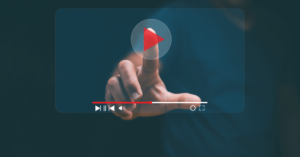
Do you use social media? In today’s world, nearly everyone has at least one social media account and the algorithms involved impact the visibility of content.
If you’re attempting to provide digital marketing and advertising to a specific group of users, you need to understand the rules and guidelines governing how visible your content will be to your audience. These rules and guidelines are called algorithms, and they work to bring content to the feeds of individuals based on relevant interests and shared engagement with other users on the same platform.
Does every platform work the same way?
Not every social media platform has the same algorithm, but they all utilize similar rules to create the expected results. At first, you might see random posts and general information, but as you spend more time using the platform and develop your interests, what you see will have a narrower field of view. This means if you want to advertise to a specific group, you must focus on that group to ensure content visibility when they utilize their social media accounts. Otherwise, your content might never be seen by the relevant group.
How do these algorithms work?
These algorithms are a complex set of rules and calculations used by various platforms to provide a more personalized content set to specific users. Every user will see different posts and content from companies. In fact, many users might not see posts from their friends and family unless they regularly engage with them on the social media site. There are many factors involved in the analysis that go into these algorithms to bring the right content forward. Some of the factors involved are user behavior, engagement patterns, and content characteristics.
Here are some key elements influencing social media algorithms. Understanding these can help make your content more visible to the right audience:
- User Engagement Likes, shares, comments, and other interactions that signal to the algorithm that content is valuable or interesting to this user. Higher engagement generally leads to increased visibility.
- Relevancy Content is assessed for relevancy based on the user’s past behavior, using interests and interactions. This helps to ensure the user will see content that aligns with their preferences.
- Timeliness Typically, newer content based on the engagement and relevancy factors will appear near the top of a news feed and be most visible to the user. This emphasizes the importance of fresh content and current events.
- Content QualityThe higher the quality, the more likely the content will appear near the top of relevant news feeds. Factors leading to quality content include image resolution, video quality, and the use of credible sources.
How do these algorithms benefit users?
If you were to see every social media post from around the world, it would take you years to get through a small amount of the content. Social media algorithms change that for you by offering the personalized experience you need with appropriate content. Some of the benefits of these algorithms are:
- Personalization The algorithms create a tailored experience for each user by presenting content that matches the individual’s interests. This helps keep users engaged and satisfied while using social media platforms.
- Content Discovery Users can see a broader range of content, including posts from new or less-followed accounts, which expands their view online.
- Efficiency The algorithms streamline the amount of available content, making it possible for users to spend less time searching for relevant information.
Are there drawbacks to the algorithms?
There are some drawbacks to social media algorithms and not all of them have to do with creators trying to make their content more visible. Some of these drawbacks are:
- Echo Chambers Similar content is shown repeatedly, creating an echo chamber and limiting the exposure that users have.
- Visibility Inequity Not all content is created equal, and not all content receives the same visibility based on the algorithms. Creators with larger followings tend to have higher engagement rates and might be more dominant in user feeds, which makes it difficult for smaller creators to break through.
- Manipulation and Misinformation Algorithms can be exploited to spread misinformation and manipulation that can be harmful to the general public. Some content can have serious and harmful consequences.
What does the future look like?
Social media algorithms will continue to evolve and become more accurate and sophisticated. This means you’ll continue to see relevant content and have to focus harder to get your content in front of the right audience, but there should be greater transparency in the future, which might give users control over their individual algorithms.
This post may contain affiliate links. Meaning a commission is given should you decide to make a purchase through these links, at no cost to you. All products shown are researched and tested to give an accurate review for you.








